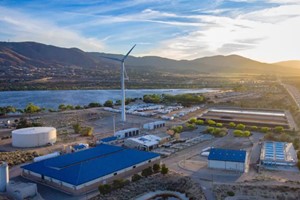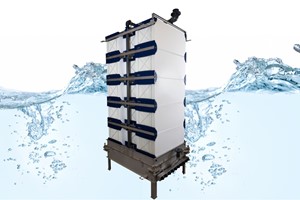The industrial landscape has undergone a significant transformation with the advent of Industry 4.0, revolutionizing operational methodologies across diverse sectors. This shift, characterized by the integration of advanced digital technologies such as the Internet of Things (IoT), artificial intelligence (AI), big data, and automation, has notably enhanced efficiency, connectivity, and sustainability in industrial operations. Among the sectors experiencing this transformation is water supply and wastewater treatment.
BPC India: Leading the Charge in Industry 4.0
Since its establishment in 2011, Bio Petro Clean India Pvt Ltd (BPC India), a subsidiary of Biological Petroleum Cleaning Ltd. from Israel, has emerged as a leader in modernizing water and wastewater treatment processes. Aligned with the 'Make in India' initiative, BPC India is reshaping the industry landscape through innovative automation and digitization efforts.
Technological Integration and Innovations
The integration of Industry 4.0 technologies into water treatment processes has been pivotal in enhancing operational efficiency. BPC India has employed a range of digital tools and technologies to achieve this, including IoT, cloud computing, and cognitive computing. These technologies are instrumental in improving efficiency, sustainability, and regulatory compliance within water treatment systems.
Automation as a Cornerstone
Automation is central to BPC India’s approach to transforming traditional water treatment methods. The company’s Automated Sampling, Monitoring, and Control Automation Skid represents a key innovation, providing precise control over each phase of water treatment with minimal human intervention. This automation enhances resource optimization, reduces waste, and improves overall system performance.
Digitization for Enhanced Decision-Making
BPC India’s commitment to digitization is exemplified by the PureBI platform, which offers real-time data analytics and predictive maintenance capabilities. This platform processes operational data to provide actionable insights, thereby enhancing decision-making and operational reliability. The result is improved water quality management and greater operational transparency.
Impact on the Water and Wastewater Sector
The integration of Industry 4.0 technologies into water management has yielded several significant benefits:
- Operational Efficiency: Automation reduces reliance on manual labor, decreasing human error rates and improving the efficiency of water treatment plants. Continuous system monitoring facilitates optimal performance, benefiting the management of groundwater and surface water resources.
- Cost Reduction: Predictive maintenance and resource optimization lead to substantial cost savings. Automated systems reduce material waste and energy consumption, which is crucial for the sustainability of water supply systems, particularly in water-scarce regions.
- Environmental Compliance: BPC India’s real-time monitoring capabilities help ensure adherence to environmental standards. The system can quickly address deviations, preventing violations and protecting freshwater resources.
- Sustainability: By optimizing treatment processes and minimizing waste, BPC India supports the sustainability objectives of treatment facilities, fostering future ecological responsibility.
Challenges and Opportunities
Despite the clear advantages of integrating Industry 4.0 into water management, several challenges persist. Initial implementation costs can be substantial, and there is a need for skilled personnel to operate these advanced systems. Nevertheless, the long-term benefits—including operational cost savings, improved compliance, and enhanced sustainability—justify these initial investments.
As the sector continues to recognize the value of these technologies, growth opportunities are extensive. BPC India is actively exploring advancements in AI and machine learning to further enhance predictive analytics and operational autonomy. These developments promise to lead to more efficient water use and improved resource management, marking a new era in water treatment and sustainability.














